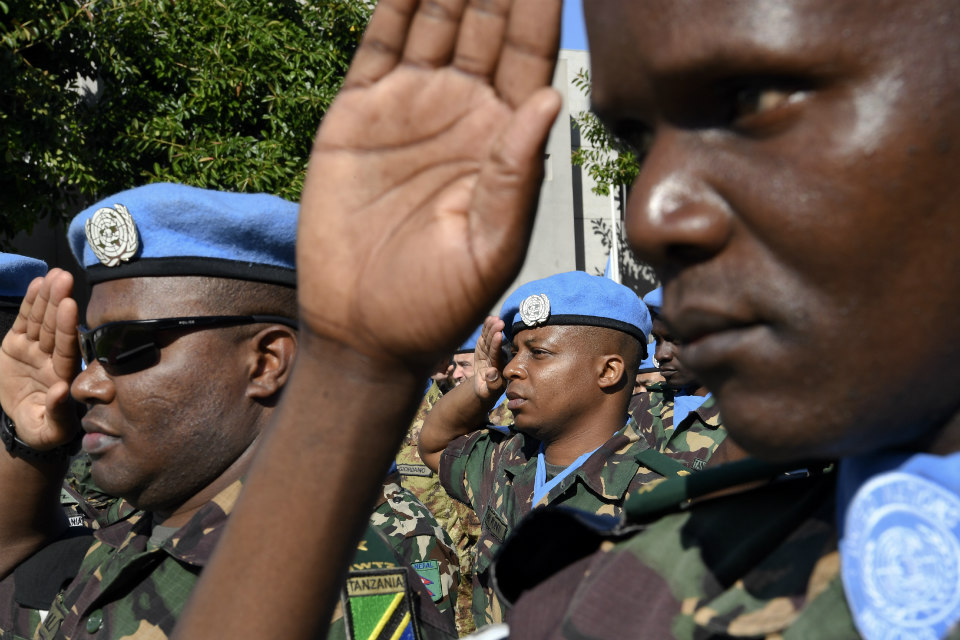"United Kingdom set out three steps which, if taken, would improve the effectiveness of peacekeeping missions"
Statement by Ambassador Jonathan Allen, UK Deputy Permanent Representative to the UN, on UN Peacekeeping Operations

Thank you Mr President, and thank you for convening this important meeting. I would also like to thank Madam Keita for her briefing.
United Nations peacekeeping operations play a critical role in containing and reducing conflict, often in the most challenging circumstances, such as in Mali and South Sudan. There are many examples of the effectiveness of these missions. There are also, unfortunately, examples of the sacrifices that individual peacekeepers make, as we were reminded by the outrageous attack that killed 15 Tanzanian peacekeepers earlier this month.
Today we have been briefed on the persistent gaps that remain in peacekeeping operations. We do not always have the right capabilities, equipment and trained personnel to deploy and deliver the demanding mandates that this Council sets.
We must do more to improve the effectiveness and efficiency of UN peacekeeping. This will enable us to better manage the conflicts where peacekeepers are deployed and better protect civilians caught up in conflict as well as the peacekeepers that take up this crucial role.
To achieve this we must invest in the UN’s force generation process. There have been significant improvements to this process, but more needs to be done.
When this Council last discussed force generation, the United Kingdom set out three steps which, if taken, would improve the effectiveness of peacekeeping missions: deployment innovation, improved mission performance, and better long-term planning and strategic force generation.
Today, I want to update the Council on the UK’s actions to support these three areas.
Last year we trained more than 11,000 troops from some 30 countries to prepare them for deployments to UN missions, including UNMISS, MONUSCO, MINUSCA and AMISOM.
Support has ranged from instructor and leadership training through to assistance with the planning, conduct and delivery of national pre-deployment training for Troop- and Police-Contributing Countries.
In addition, we continue to support mandatory e-learning pre-deployment training for all troops to prepare them to respond to and prevent sexual exploitation and abuse.
The Women Peace and Security Chiefs of Defence Network which we launched alongside Canada and Bangladesh in November is a critical tool to strengthen training and capacity building on gender throughout peacekeeping and at all levels.
We have also provided over $800,000 in extra budgetary funding to the Departments of Peacekeeping Operations and Field Support.
The UK now has over 700 personnel deployed on 8 UN missions operating in 7 countries. These include 380 troops in South Sudan, 40 in Somalia, and 280 in Cyprus.
And we have embraced “smart pledging” which was raised by my Minister of State for Defence at the Vancouver Defence Ministerial. This innovation will enable us to better meet our obligations through a coordinated response with partners. For example, through our deployment to UNMISS, we are working with Vietnam, the USA and Australia, to provide a field hospital in Bentiu, South Sudan, which ensures the provision of medical care for peacekeepers.
But coordination needs to go further.
Firstly, we must collect performance data and use this to better understand and focus our limited resources to where training and capacity building are most needed. We must coordinate our collective efforts more.
Cooperation should be expanded to cover leadership, gender integration, protection and victims’ support.
Secondly, we must see more partnerships and more smart pledges. We need to develop mechanisms that match those that can provide equipment and technology, specialist skills and personnel, or logistical support. Smart pledges will help plug the persistent gaps.
Finally, we must consider the non-military components of peacekeeping. We must support capacity-building work carried out by Individual Police Officers and Specialised Police Teams. This supports recovery and creates long-term stability. And we must consider how we can generate the civilian component so that missions do not just keep the peace, but build and sustain it as well. Wider work on management reform has a role to play. Crucial civilian posts must not remain unfilled.
We all recognise the positive impact peacekeepers have worldwide. We ask them to take on enormous challenges to protect the most vulnerable. We must do our upmost to improve the systems that support them. We owe this to the brave women and men who serve under the blue banner.
Thank you Mr President.